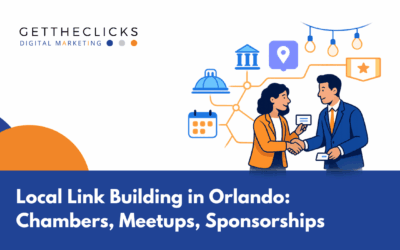Guest blog posting, essentially posting your content onto another website’s blog and linking it back to your page is a great way to not only build links to your site, but also get your quality content out to more eyes. Creating quality links to your website takes time and whole lot of effort, this is where the temptation of taking the easy way out rears its ugly head.
Let’s get one thing straight- no matter how good your websites stats are, how many links you have to your site, how much keyword rich content you have, if Google thinks you are trying to game the system, they won’t trust you, and if they don’t trust you , you simply won’t rank as well. This is why it is crucial to not go overboard with one tactic in the SEO world.
You may start off posting excellent content to a high PR webpage who is very picky about whose posts they allow on their site. If you get on that site, great! But that’s really only one link going back to you. Your competition has many, many more. So you think, hey, I should post more content, and get more links! This is fine, still all a very white hat approach to SEO, but when you lose sight of the fact that quality links are more important than the quantity of links is when you get yourself into hot water. When you start thinking of ways to synthesize this process to create less work for you and more links to your site is when you risk having Google on your tail.
What’s Impressing Google Today?
Especially with the Penguin update, Google is focusing more and more on ranking trustworthy sites. So what makes a webpage trustworthy in Google’s eyes anyway? Well, not 1,000,000 links from no name sites that’s for sure. Having fewer links from more reputable sites, such as .gov or .edu sites will get you much further up in ranking than bulk .com sites linking to you will.
Also, You want to be sure your content is on point. Bounce rate is becoming a bigger and bigger factor in how you rank. It makes sense though, if someone clicks on your site then immediately clicks off, you either gave them what they were looking for quickly (normally something like a phone number) or your webpage was a giant pile of elephant dung. Google doesn’t want elephant dung on the first page. Make sure if you are getting your information from somewhere else, that you cite your information. Google will see this and assume the information you are providing is well researched and accurate, which is good.
Once you have this covered, you will want to work on your reputation and brand. Solid branding that is recognized is hard to attain. If your company name is turning into a search keyword, you know that you are doing a pretty good job branding. If a good chunk of your clicks are coming from a Google search of your company name, that will be recognized and you will likely be rewarded in terms of ranking.
What Google wants today could be completely different from what Google wants tomorrow. But one thing will most likely stay the same, Google will continue to rank sites that they can trust. So don’t go overboard or try to synthesize your SEO efforts people! Google knows!




